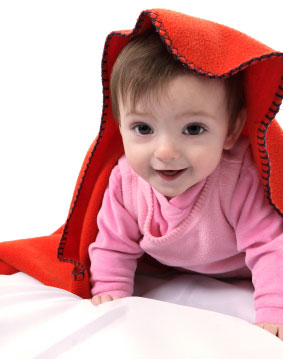7 Little Games to Develop Language Skills for 1-2 Year Old Babies - A Toy's Log - NetEase Blog
Parents are a child's first teachers, and promoting the development of language communication skills in children at home requires correct parent-child interaction. Whether it is oral ability or behavioral cognition, the most effective way to educate young children is through learning while playing. In addition to creating interesting life scenarios, regular small activities and games at home also serve as great teaching content and venues for language communication. Here are some small games for developing language skills in 1-2-year-old babies:
1. Action and Touch Games
Stimulate the child’s interest by using actions and touching toys or body parts to enhance their recognition of different body parts: touch the nose, clap hands, and guide the child to follow along.
2. Cognitive Games
Use building blocks or drawings to create shapes such as trains, cars, cups, etc., and give verbal commands to direct the child to identify these items. Once the child becomes familiar with the names of the items, encourage them to select the item themselves and make relevant cognitive actions: airplanes fly high, cups can hold water to drink.
3. Sentence Relay
This game helps train a child's ability to form sentences. For example, if the child says: "Mommy, shoes," Mommy can respond by extending the sentence: "Mommy will help you put on your shoes."
4. Bilingual Games
Teachers can ask children to say the same thing in both Chinese and English. Singing English songs. Parents should choose items that the baby is most familiar with when doing bilingual practice and conduct this practice in a playful manner.
5. Puppet Shows
Develop the baby's expressive abilities through language games with adults. Learn antonyms and recognize colors. The teacher and the child can have a dialogue using puppets and recognize colors together.
6. Is This Okay?
Help the baby distinguish right from wrong during the game and correctly evaluate human behavior. Cultivate the baby's observational skills by letting them point out mistakes in certain behaviors. When the baby makes a wrong judgment, parents should not immediately negate but rather encourage.
7. Guess What?
Develop the baby's thinking ability through sensory activities. Enhance the baby's understanding and thinking abilities. Let the baby taste sour, sweet, salty flavors, and associate them with relevant things.
Actually, there is no secret to cultivating language skills; just playing with your child is beneficial! Besides spending time together, parents must also appropriately guide their children in learning. For instance, playing with paper clay with your child can train their sense of touch. Discussing what shapes to mold can stimulate imagination, and encouraging the child to express their own thoughts helps develop oral expression skills.
